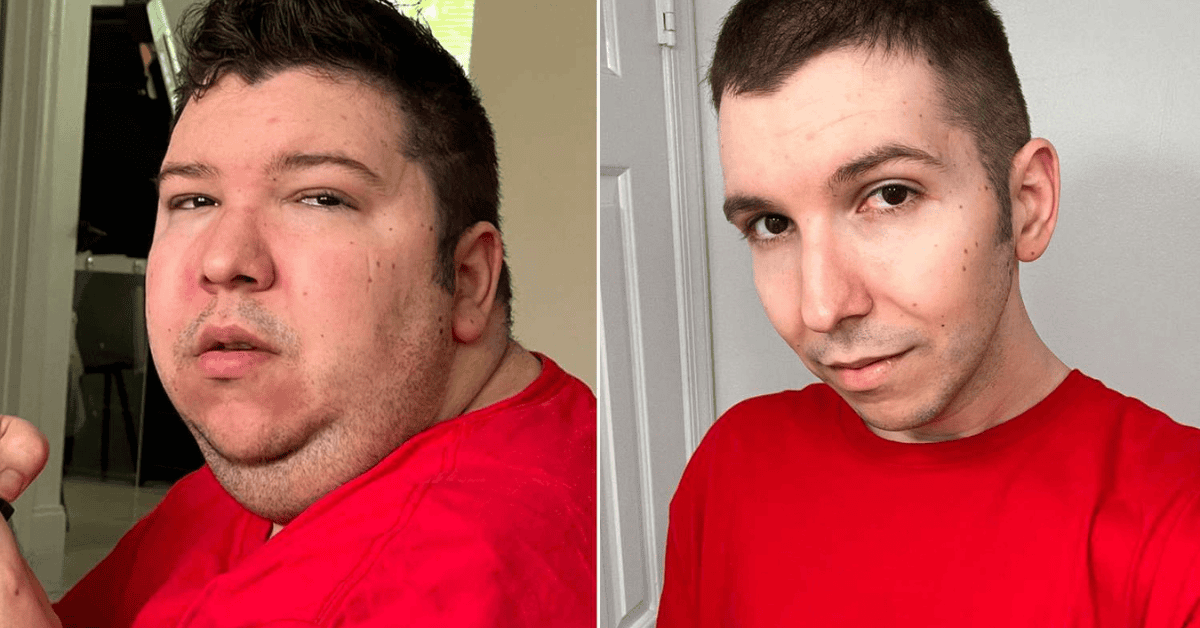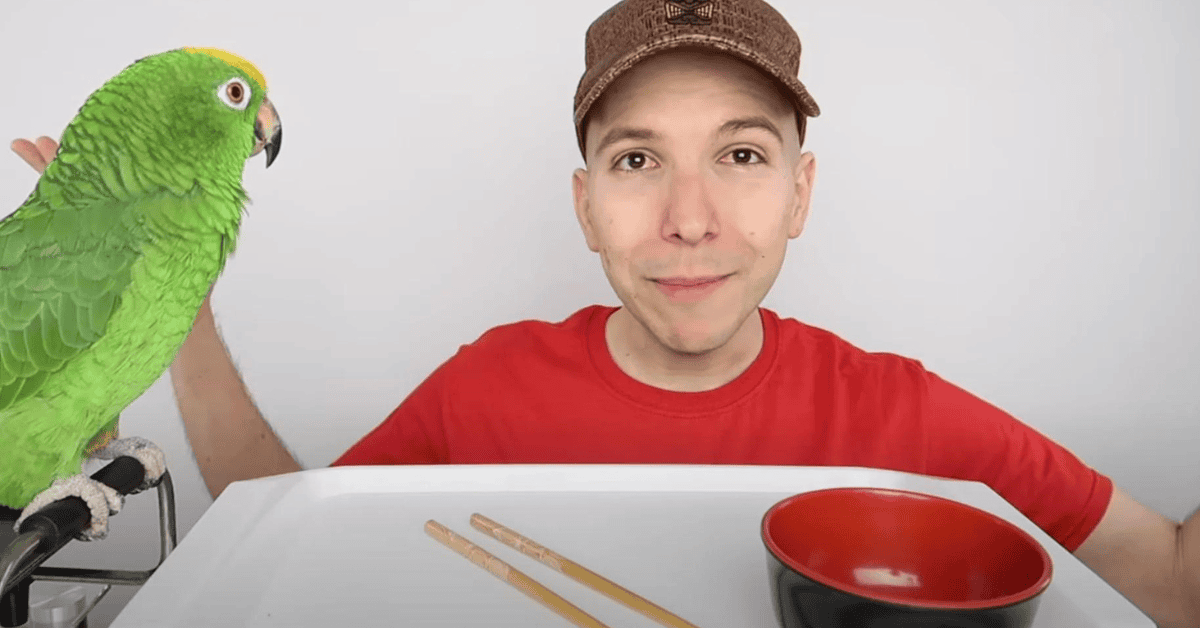YouTuber Nikocado Avocado, also known as Nicholas Perry, is no stranger to controversy. With over four million subscribers, his content often involves extreme mukbang videos, where he consumes large amounts of food while addressing his viewers. Over the years, Perry’s audience has witnessed his significant weight gain, followed by numerous publicized health concerns. Recently, however, he shocked the internet by announcing a 250-pound (110kg) weight loss, a transformation that had seemingly occurred in secret.
While initially praised for his dramatic weight loss, it was revealed that this transformation was part of a deceptive “social experiment.” Perry had been posting prerecorded content while undergoing this change, claiming to have manipulated his viewers in what he called “the greatest social experiment” of his life. This reveal raises significant questions about the ethics of exploiting fatness and public trust for engagement and profit.
The internet has democratized content creation, allowing virtually anyone to produce and share videos on platforms like YouTube, TikTok, and Instagram. But as accessible as content creation has become, the motivations behind it are varied. Some individuals create content for joy, connection, or self-expression, while others, like Nikocado Avocado, focus on fame and financial success.
For Perry, the latter has been abundantly clear. His YouTube channel, known for its inflammatory and emotional content, garners millions of views, translating into significant advertising revenue. What’s particularly concerning is how content that sparks strong emotional reactions—whether joy, disgust, or concern—tends to perform better on platforms that reward engagement over quality or truth. YouTube’s recommendation algorithms favor videos that generate likes and comments, which explains why Nikocado’s increasingly bizarre and controversial videos have risen in popularity.
Also Read: Thyroid Health 101: If You’re Affected, Here’s What You Need to Know
Over the years, his content has featured titles like My New Diet As A Disabled Person and Jesus Is Coming Soon, He Spoke To Me, highlighting the lengths Perry is willing to go to provoke reactions. As Perry himself stated in a 2019 podcast, “They [viewers] like when I’m upset, they like when I’m crying, they like when I’m hyper.” This strategic manipulation of emotions plays a crucial role in his monetization efforts, but it also raises ethical concerns about the cost of exploiting one’s health and image for financial gain.

Nikocado Avocado’s weight-loss hoax took center stage when he posted a video titled Two Steps Ahead. In this video, Perry revealed that for two years, while his audience was watching him overeat in his prerecorded mukbang videos, he had been secretly losing weight. His revelation was framed as a social experiment, in which he compared his viewers to “ants on an ant farm,” claiming he had controlled the narrative all along.
Perry’s deception was met with mixed reactions. Some applauded his weight loss, while others were disturbed by the manipulation. Despite this, a notable portion of his audience excused his actions, focusing instead on his impressive transformation. Perry’s comments in the video further underscored his intent: “Today I woke up from a very long dream […] having lost 250 pounds off my body, yet just yesterday people were calling me fat and sick and boring and irrelevant. People are the most messed-up creatures on the entire planet, and yet I’ve still managed to stay two steps ahead of everyone. The joke’s on you.”
While Perry’s fans may view this as a clever stunt, his deception highlights a much broader issue—how misinformation and dishonesty are becoming normalized in online spaces, especially when the falsehoods align with the desires and values of the audience.
In today’s digital age, dishonesty on the internet is often expected. We live in what some researchers call the “post-truth” era, where misinformation is tolerated, particularly when it reinforces our pre-existing beliefs. Nikocado Avocado’s audience had long urged him to lose weight, and his sudden transformation fulfilled that desire, making it easier for viewers to overlook his deception.
This tolerance of falsehoods isn’t limited to internet personalities like Perry. Studies have shown that people are more likely to excuse misinformation if it aligns with their political or personal views, allowing figures—whether public officials or influencers—to spread blatant untruths without major consequences. Perry’s deception, centered on his drastic weight loss, taps into this psychological phenomenon, highlighting how easily moral boundaries can shift when the outcome aligns with the audience’s desires.
While Nikocado Avocado’s content has generated significant revenue, it has also perpetuated harmful narratives surrounding body size and health. Throughout his YouTube career, Perry has faced countless comments expressing “concern” for his well-being. On the surface, these comments may appear supportive, but they often mask an undercurrent of fatphobia. This practice, known as concern-trolling, involves using feigned sympathy to pass judgment or undermine others.
The comment sections of Perry’s videos are filled with remarks like, “I’m just worried about your health,” which, in reality, often serve to reinforce societal stigma against larger bodies. Such comments are not just harmful to the individual being targeted but contribute to a broader discourse that perpetuates fatphobia and weight stigma in online spaces.
Even after Perry’s weight-loss reveal, viewers speculated about how he achieved his transformation, with some suggesting he may have used weight-loss drugs. This speculation only adds fuel to the fire, further deepening societal preoccupations with body size and reinforcing the false dichotomy between “fat” and “thin.”
At the core of Nikocado Avocado’s content is the commodification of fatness and weight loss. His mukbang videos, once a form of rebellion against societal norms of restrictive eating, became spectacles of excess, drawing in viewers with their shock value. What began as a rejection of shame soon morphed into an exploitation of overeating and fatness for profit.
This transformation is not unique to Perry. In fact, the commodification of body size has long been a lucrative business. The weight-loss industry, valued at over $500 million in Australia alone in 2023, thrives on the public’s obsession with body image. Programs like The Biggest Loser have turned weight loss into entertainment, promoting weight stigma and fatphobia while profiting from the spectacle.
WATCH: 13 Health Benefits of Chia Seeds You Need to Know
In this context, Nikocado’s weight-loss hoax is merely the latest example of how creators can exploit public interest in body politics for fame and financial gain, further blurring the line between performance and reality.
Nikocado Avocado’s weight-loss hoax offers more than just a glimpse into the life of a controversial internet personality—it serves as a reflection of our collective behaviors as content consumers. His manipulation of fatness for engagement, combined with the willingness of his audience to overlook deception, underscores the troubling dynamics of modern content creation.
In a world where authenticity is often sacrificed for clicks and views, Perry’s story highlights the ethical dilemmas of online fame. While his experiment may have brought him more attention and profit, it also serves as a cautionary tale about the impact of misinformation, fatphobia, and the commodification of body image in the digital age.
